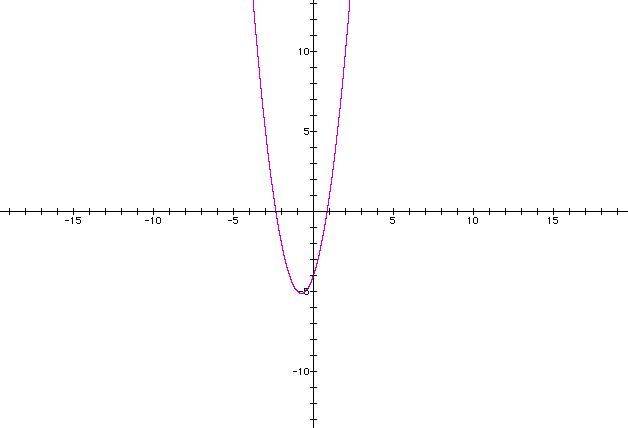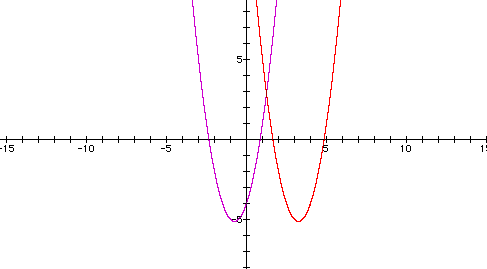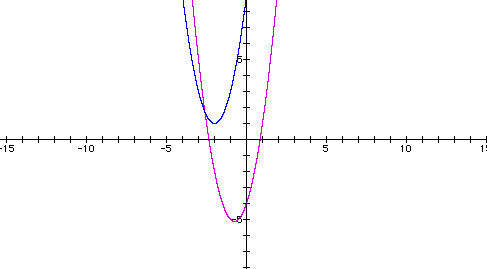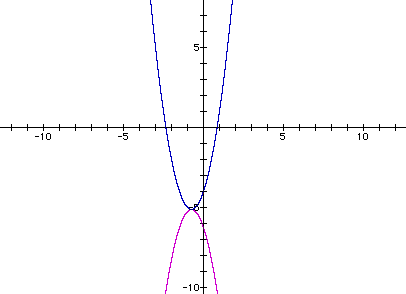Assignment
#2
Graph 
i. Overlay a new
graph replacing each x by (x-4).
ii. Change the
equation to move the graph into the second quadrant.
iii. Change the
equation to produce a graph concave down that shared the same
vertex.
First let's take a look at what
the graph of this quadratic looks like.


I found the same
quadratic equation by completing the sqaure. For an explaination
on how to complete the square click
here.
y = 2(x + (3/4)
)^2 - (41/8)
This quadratic equation
is in the quadratic form
y = a (bx - h )^2
+k, we can compare different quadratic graphs by looking at the
parent graph of y = x^2
If the absolute
value of a is greater than 1 then your graph will stretch vertically
by a.
If the absolute
value of a is less than 1 then your graph will compress vertically
by a.
If the absolute
value of b is greater than 1 then your graph will compress horizontally
by 1/b
If the absolute
value of b is less than 1 then your graph will stretch horizontally
by 1/b
The vertex of the
the graph is (h,k)
If h is negative
then the graph will move to the right, h units
If h is positive
then the graph will move to the left, h units
If k is positive
then the graph will move up, k units
If k is negative
then the graph will move down, k units






Return to :Jennifer Weaver's
Home Page
![]()



